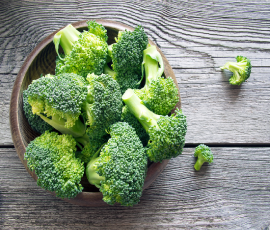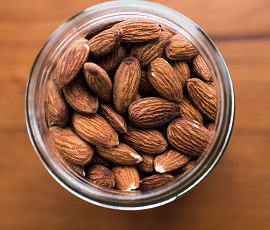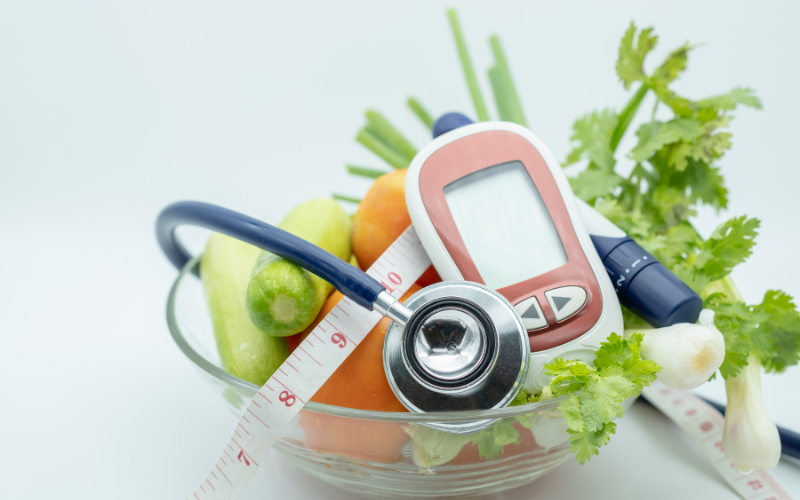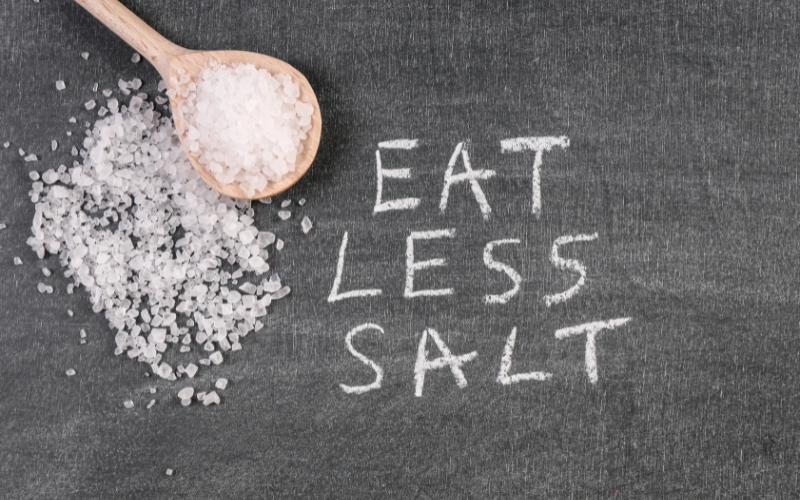Why am I so tired? Top 10 reasons for tiredness & how to overcome it

Many people report feeling constantly tired or fatigued. Are you one of them?
Perhaps you put it down to working too hard or burning the candle at both ends? Maybe you’ve even become so accustomed to feeling lethargic that you’ve forgotten what energised feels like?
First things first, prolonged feelings of exhaustion warrant a trip to the doctor to rule out medical reasons for your tiredness. There are any number of conditions that may be linked to fatigue such as anaemia, chronic fatigue syndrome, glandular fever, diabetes or being coeliac to name a few.
If you’re not suffering from a medical condition, then it’s time to turn the spotlight on health and lifestyle reasons for your tiredness. Here we list the top ten culprits and how you can combat them to bounce back to a more energetic you.
1. Eating too much sugar and processed carbs
When sugar and processed carbohydrates are consumed, they cause a rapid rise in your blood sugar. This signals your body to release insulin to move the sugar out of your blood stream and into your cells, which creates a subsequent drop in blood sugar levels. And all this spiking and crashing can quite frankly, leave your body feeling depleted of energy. Unfortunately it’s a vicious cycle which creates cravings as the body wants to feel the sugar surge once more. The best defence is to break the cycle by opting for wholefoods that cause a minimal impact to your blood sugar. Complex carbs, healthy fats and proteins all cause a slow release of energy to prevent the spike and crash pattern. For more information on the ills of sugar and how to break your sugar addiction, read this blog post Sugar: Poison or Passion?
2. Inadequate protein
A diet that lacks protein could be responsible for your tiredness. That’s because consuming protein boosts your metabolic rate more than either fat or carbohydrate can. As mentioned above, protein can also stabilise blood sugar levels and help you feel fuller for longer. Try to include a good protein source at every meal, such as meat, fish, chicken, tofu, eggs, nuts or cheese. It can be harder to eat a high protein diet if you’re vegetarian or vegan; it’s not impossible, it just takes more planning. Some high protein vegetables are lima beans, bean sprouts, spinach, green peas, asparagus, sweet corn, Brussels sprouts and mushrooms.
3. Not eating enough vegetables and fruit
Malnutrition is another common cause of tiredness. If your body doesn’t receive an adequate base level of nutrition from the foods you eat, then it’s not going to function efficiently. A variety of healthy wholefoods are important, with a focus on fruits and vegetables which pack a punch due to their high vitamin and mineral content. They also provide powerful phytonutrients and antioxidants to boost vitality.
4. Lack of activity
Are you too tired to exercise? Unfortunately, that could be part of your problem. Leading a sedentary lifestyle can sap your energy. To boost your energy levels, you need to replace sedentary behaviours with active ones. It may be hard at first but you can build up over time. Examples are to stand rather than sit, take the stairs instead of the elevator, to walk instead of drive and generally get your body moving more with exercises such as swimming, walking, yoga or Tai chi. Here’s an article which spells out the Benefits of Physical Activity and the risks associated with sitting too much.
5. Poor sleep
According to the Sleep Foundation of Australia, 45% of Aussie adults suffer from poor sleep. This can leave you feeling downright sleepy as well as mess with your marbles (logical thinking).
On the other hand, a night of restful and uninterrupted slumber allows your brain to go through all five stages of each sleep cycle. Upon waking you should feel refreshed, alert and energised.
In addition to getting enough sleep, maintaining a regular sleep routine also seems to help prevent tiredness. This can involve going to bed at roughly the same time every night, turning off devices an hour before sleeping, getting sunshine and activity during daylight hours.
6. Food intolerance
Food sensitivities or intolerances typically cause symptoms like digestive issues, nausea, mouth ulcers, rashes or headaches. But fatigue is another symptom that's often overlooked. Common food intolerances include gluten, eggs, dairy, soy and corn. If you suspect that certain foods may be making you tired, read more on food intolerance for more insight and help. Consider getting in touch with an allergist or dietitian who can test for food sensitivities or help you adopt an elimination diet to determine problematic foods.
7. Calorie restriction
Are you dieting? A severely restricted calorie intake could be the reason you’re feeling tired. When you eat too few calories, your metabolism slows down in order to conserve energy. Most people require a minimum of 1200 calories per day to prevent fatigue from a metabolic slowdown. A good way to ensure you obtain the minimum calories, optimal nutrition and still get weight loss results is to opt for a healthy meal plan where all the calorie counting and nutritional balancing is already done for you. Dietlicious has plenty of options to choose from, including 1200 Calories, 1500 Calories, Anti-Inflammatory Diet and a selection of Low Carb Plans too.
8. Dehydration
Dehydration occurs when you don't drink enough liquid to replace what you lose in sweating, breathing and digestive elimination. Scientists now know that even mild dehydration can lead to lower energy levels and a decreased ability to concentrate. That’s because the fluid loss causes a drop in blood volume, which makes the heart work harder to push oxygen and nutrients through the body. Water and herbal teas are good options to replenish your fluid loss; make sure you drink enough so that you don’t feel thirsty and your urine is a pale yellow colour.
9. Stress
Mental, physical and emotional stress can really deplete your energy stores. As examples, if you’re working too hard, overdoing it at the gym or suffering from emotional trauma, you may need to rethink your lifestyle. Practicing stress-reduction techniques is a great way to help you manage day to day strain. Mental health issues such as anxiety and depression are also causes of tiredness, so if your stress is making it hard for you to cope then check in with a professional for some help. This article includes some good pointers to help you reduce stress and be kind to yourself.
10. Too much coffee, alcohol or energy drinks
Drinks that are laden with caffeine, alcohol, sugar, B vitamins, amino acids and other herbs may provide a temporary boost in your alertness levels. But, chances are that the high will be followed by an energy and mood dip as the ingredient effects wear off. You’ll be left feeling flatter and more fatigued than when you started. It’s best to limit or avoid these types of drinks if you can. Both alcohol and coffee can also add to your dehydration levels, plus caffeine can impact your sleep if consumed after lunchtime, which can further add to your complaints of tiredness.
Do’s and Don’ts for boosting energy
Do eat a variety of healthy wholefoods which help to heal from the inside and promote wellbeing. Check out the Australian Dietary Guidelines Summary for all the facts on nutritious foods and how much you should be eating.
Do think about how to manage your appetite. When experiencing tiredness, some people find that they are hungrier, or have cravings for the wrong foods. Other people may lose their appetite altogether. Try to eat a moderate amount at regular times to maintain nutrition and prevent a dip in your blood sugar levels.
Do get some sunshine on your skin every day. Just a few minutes a day will help increase your Vitamin D levels, give you more get-up-and-go, plus help regulate your circadian rhythm that in turn supports good sleep.
Do read this article on how to beat the afternoon slump, from our expert nutritionist Zoe Bingley-Pullin for more tips.
Don’t rely on a quick fix as they don’t exist! No single food will boost energy alone. Superfoods are great but all the superfoods in the world still can’t compensate for unhealthy eating. It’s all about balance and moderation.
Don’t skip meals. Breakfast can be especially important if you’re experiencing tiredness as it can kick-start your energy and healthy eating habits for the day ahead. Opt for slow release carbs, healthy fats and quality protein at each meal for a gradual energy release and plenty of nutrients.
Don’t eat too many processed foods as they are loaded with additives, preservatives, unhealthy fats, salt and sugar. All these ingredients will mess with your energy and can cause your body and mind to feel lethargic.











